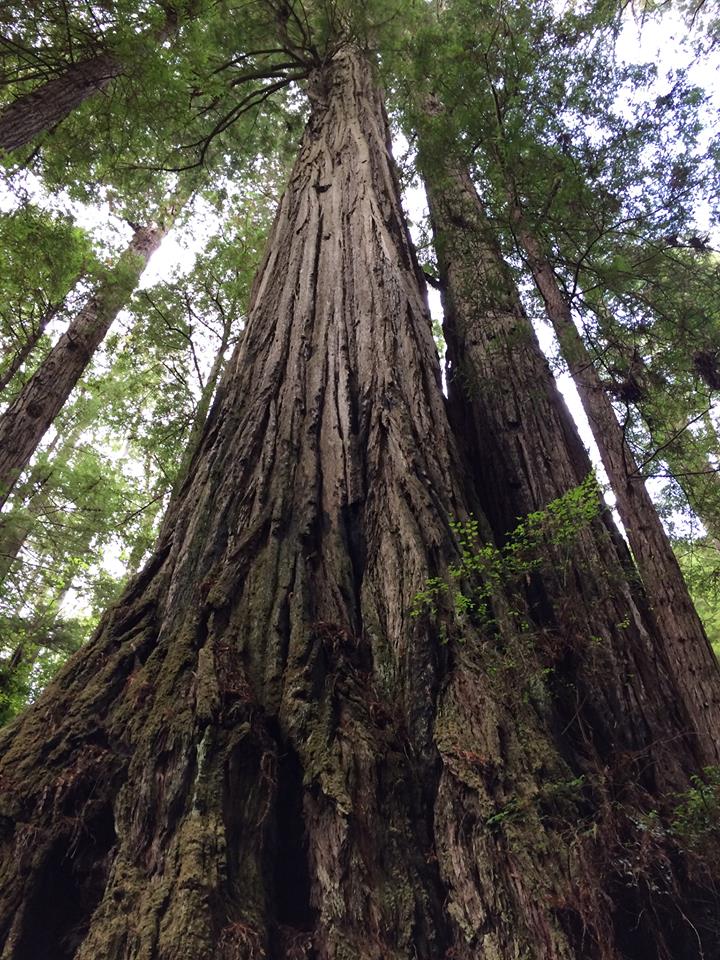"Don’t ask what the world needs. Ask what makes you come alive, and go do it. Because what the world needs are people who have come alive." - Howard Thurman
My mother used to say “Find out what you’re good at and do it for all you’re worth.” That was pretty good advice and I believed her, but it didn’t quite get me to the core. There was some other unnamable longing I couldn’t identify that was different from what I might be good at. I knew, though, that combining this yet undiscovered passion with skill was what would make me come alive.
I recently spent the day hiking in the Redwoods along a trail that led to a small canyon with walls covered in lush thick layers of green drippy ferns. The hike meandered through ancient trees of massive girth and so tall the tops couldn’t be seen. I could taste the sweet pungent smell of the forest and its huge palpable silence was breathtaking. There’s nothing quite like pausing and listening to nothing.
Not far from the bottom of the canyon I headed out on a trail leading to the foggy beach and there, just out of the brush was a huge fully mature bull elk quietly grazing. It had the biggest multi-pronged rack I’d ever seen. Wide-eyed and speechless, I turned to take a different route.
Days spent in beauty and wonder make me come alive like nothing else and change how I experience my life. Seng Tsan, the Third Zen Patriarch said “Stop talking and thinking and there is nothing you will not be able to know.”
How then, can these kinds of experiences inform and influence our working lives? Neuroscience now tells us that training the mind to seek out and look for the good strengthens the neural pathways in the brain responsible for feelings of well-being. Look for the good on purpose, see beauty within our day-to-day lives, reflect on what brings you joy. Notice it, take it in and let it soak. Try it out for yourself.
----------
As I think back over the last 30 years of my working life, my most difficult time was while I was a nurse working in the hospital. For me it was fraught the many bumps and bruises characteristic of an unhealthy work-place; competition, distrust, poor communication, difficult hours, jealousy, and lack of advocacy all within the confines of a demeaning hierarchical political structure, not to mention facing straight-on the frailty of life and certainty of death every moment of every day.
It didn’t work for me, and it was painful to face the truth that the profession I had chosen was hurting me, and by extension, my young family. Early one morning when I came home from a night shift exhausted and demoralized my husband said, “You know…you don’t have to do this work.” Bam! I can still remember the relief and realization in that very moment. I understood, probably for the first time, that my happiness and unhappiness are inextricably linked to my own choices - that I actually could make a different choice.
One of my favorite compass questions from the Buddha is “What, when I do it, will lead to my long-term welfare and happiness?” It’s simple, reliable, and brilliant. The question brings clarity to confusion, accesses our deepest wisdom, and taps into what really makes us come alive. Developing the capacity to know and experience the difference between what’s skillful and unskillful, what supports our well-being and what undermines it, suffering and the easing of suffering, is central to Buddhist practice. It’s also central to living a contented and satisfied life.
Take a look around, find what you’re good at, find what takes your breath away and I think you’ll find what makes you come alive. Live there.

